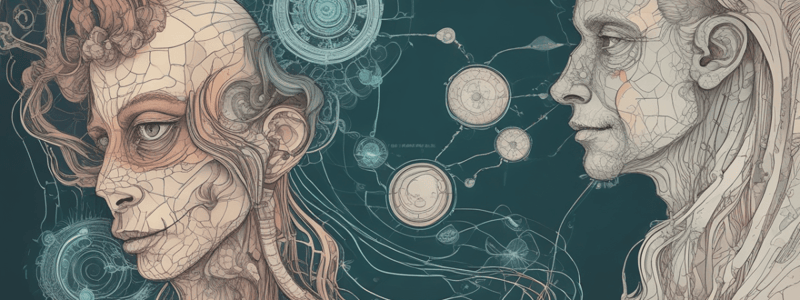Podcast
Questions and Answers
What is the primary purpose of conducting scientific experiments?
What is the primary purpose of conducting scientific experiments?
- To study the impact of human actions on ecosystems
- To develop new medicines and treatments
- To understand natural phenomena and how systems work (correct)
- To conduct research on animals
What is the role of a hypothesis in the scientific method?
What is the role of a hypothesis in the scientific method?
- To observe natural phenomena
- An educated guess about the outcome of an experiment (correct)
- To analyze the data collected
- To create a question to be answered
What is a variable in a science experiment?
What is a variable in a science experiment?
- The changing part of an experiment (correct)
- The dependent part of an experiment
- The constant part of an experiment
- The controlled part of an experiment
What is the series of steps that scientists use to conduct an experiment?
What is the series of steps that scientists use to conduct an experiment?
What is the first step in the scientific method?
What is the first step in the scientific method?
Why are experiments essential for our daily lives?
Why are experiments essential for our daily lives?
What happens to a hypothesis after an experiment?
What happens to a hypothesis after an experiment?
What is the primary reason scientists often change only one variable at a time in an experiment?
What is the primary reason scientists often change only one variable at a time in an experiment?
What is the term for the quality that is being measured as the outcome of the experiment?
What is the term for the quality that is being measured as the outcome of the experiment?
What is the purpose of a control in a scientific experiment?
What is the purpose of a control in a scientific experiment?
What is the term for the variable that is intentionally changed by the scientist?
What is the term for the variable that is intentionally changed by the scientist?
What is the purpose of keeping certain variables the same in an experiment?
What is the purpose of keeping certain variables the same in an experiment?
What is the term for the quantity being measured or observed in an experiment?
What is the term for the quantity being measured or observed in an experiment?
Why is it important to have a control group in an experiment?
Why is it important to have a control group in an experiment?
What is an example of a controlled variable in an experiment?
What is an example of a controlled variable in an experiment?
Flashcards are hidden until you start studying
Study Notes
Science Experiments
- Science experiments use a structured process to test hypotheses and uncover natural phenomena.
- Experiments help scientists understand how natural systems work and are essential for learning how the world works.
The Scientific Method
- The scientific method is a series of steps that include:
- Observation of natural phenomena or researching existing knowledge
- Creating a question to be answered through the experiment
- Creating an educated guess (hypothesis) about what will happen
- Conducting an experiment and collecting data
- Analyzing data and accepting or rejecting the hypothesis
Variables in Science Experiments
- A variable is the changing part of an experiment that can have many possible values.
- There are three types of variables:
- Independent variable: the variable being changed in an experiment (e.g. amount of water given to plants)
- Dependent variable: the outcome of the experiment being measured (e.g. height of plants as measured at specific intervals)
- Controlled variable: facets of the experiment that are kept the same to ensure results are due to the independent variable alone (e.g. sunlight, temperature, and soil composition)
Controls in Science Experiments
- A control is a standard used for comparison to check the results of an experiment.
- Controls provide a baseline for comparison of the dependent variable in the experiment.
- Examples of controls:
- A group of cells not given a drug (control group) compared to a group given the drug (experimental group)
- A group of people given a sugar pill (placebo) compared to a group given a new drug
Studying That Suits You
Use AI to generate personalized quizzes and flashcards to suit your learning preferences.




